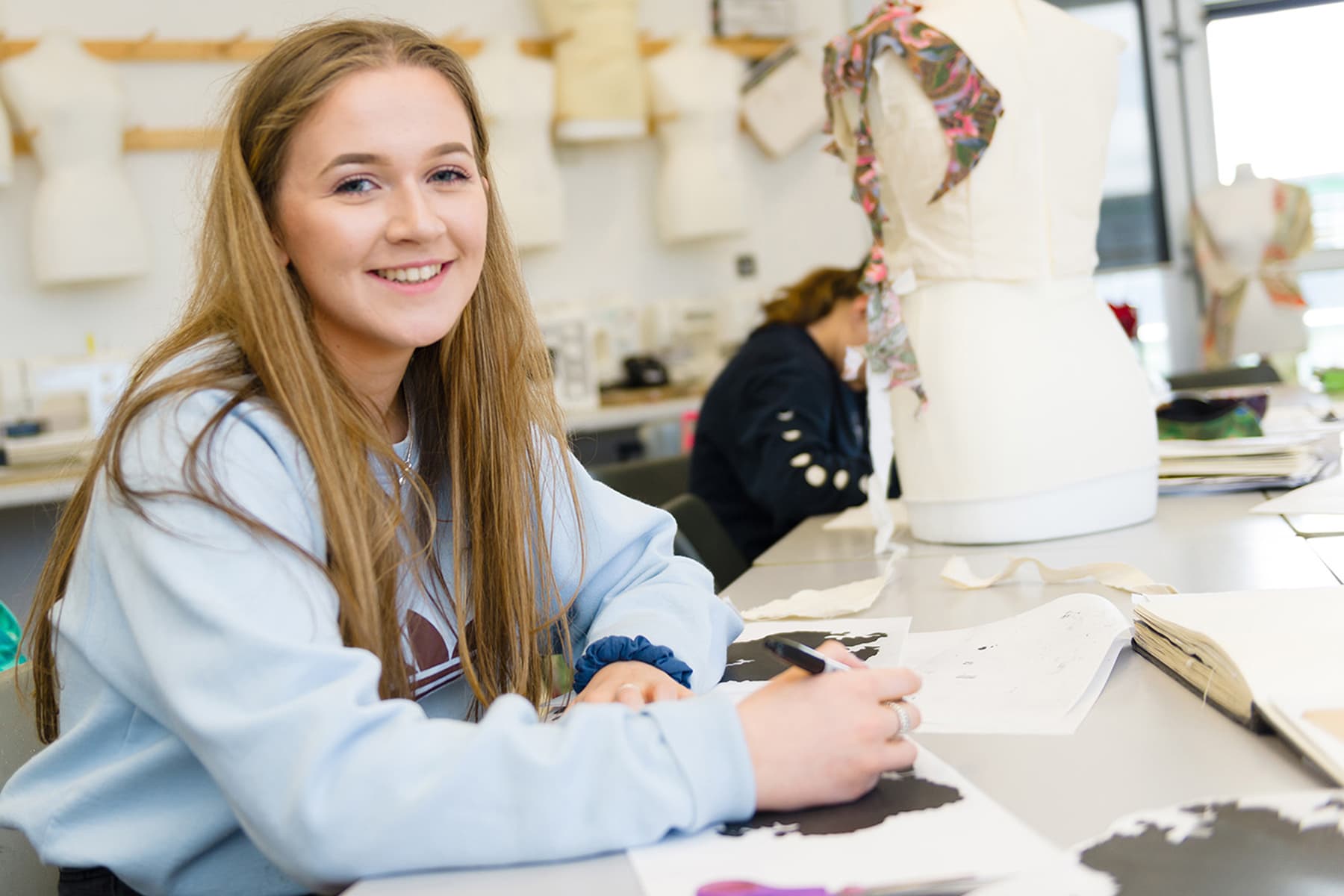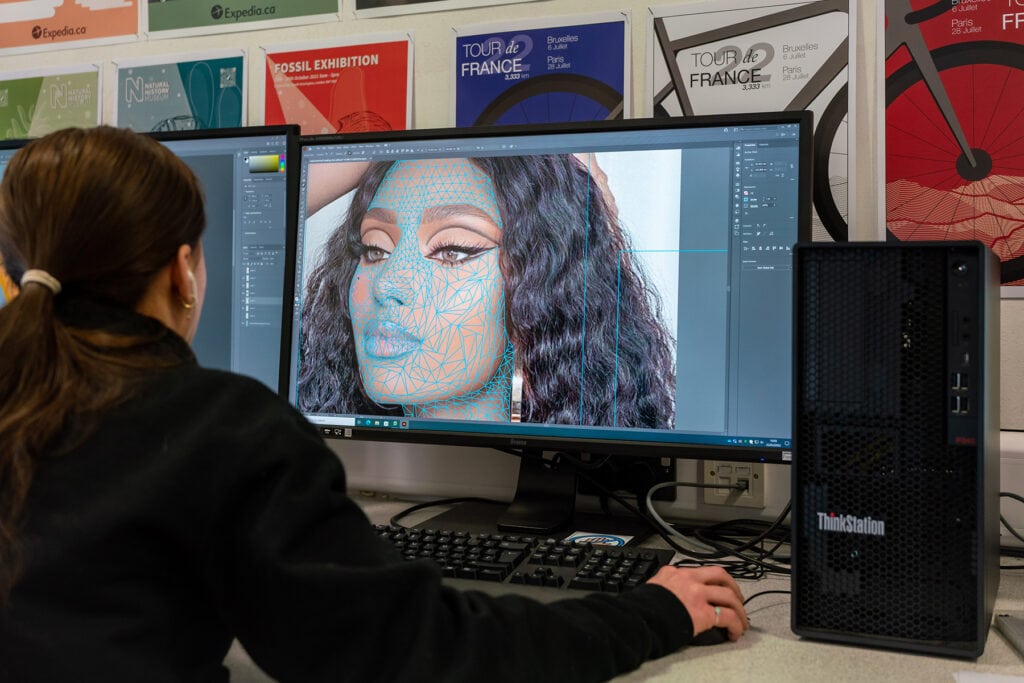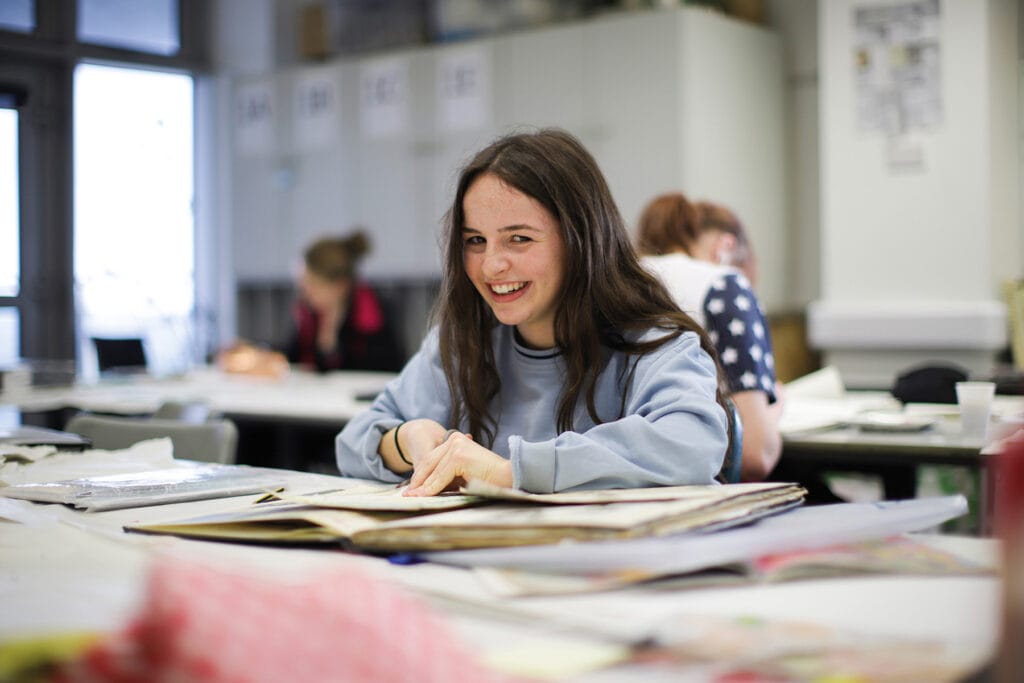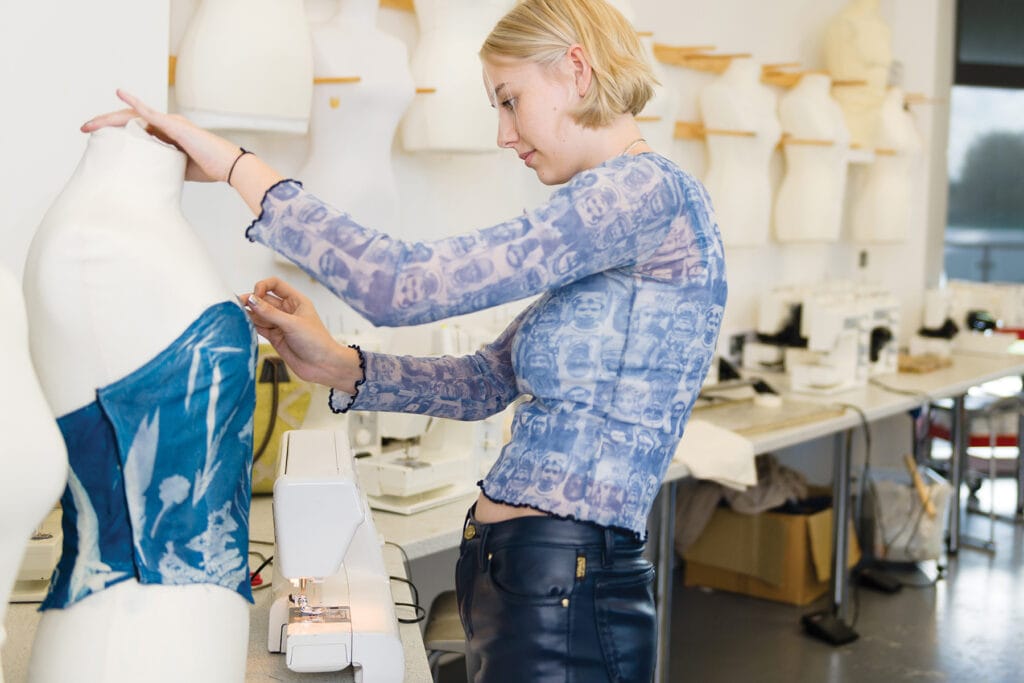New students starting in September: You can find more information about Induction days and submitting your GCSE results in our Start of Year Guide.
WHY CHOOSE THIS COURSE?
Do you enjoy drawing and designing garments, alongside the challenge of bringing your ideas to life through making? The Fashion course encourages you to develop a creative approach to contemporary fashion and costume design. Learn how to develop innovative solutions to a fashion or costume brief through research, experimentation and sample making. Take your ideas from designs to final concepts, gaining skills in the processes needed to produce garments. You will also broaden your knowledge on various designers, taking inspiration from their work to use in your own creations.
Apply for this course
Start date: 08/09/2025
TOP COURSE HIGHLIGHTS
Learn visually
Work sculpturally
Research Skills
Think creatively
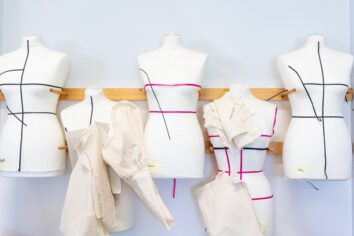
Explore shape and silhouette
Explore structure and shape in relation to the body, combining exciting fabrics and embellishment techniques
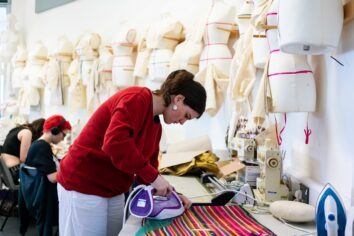
specialist workshops
Specialist Fashion workshops develop skills and knowledge through playful exploration of processes harnessed in relation to your individual creative interests. Research how contemporary and historic designers have communicated their ideas.
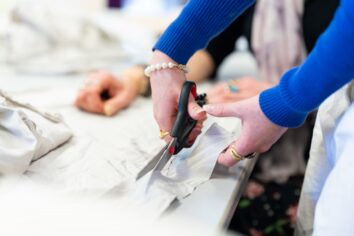
Friendly and knowledgeable staff
The art and design team are friendly, supportive, ambitious, and hardworking. Achievement relies on your attendance, punctuality, and commitment to learning, both independently and within lectures.
WHAT WILL I LEARN?
Year 1: Varied workshops explore the visual research processes used by fashion designers. Gain skills in fashion drawing and garment rendering, draping and patternmaking, garment construction and embellishment techniques. Research how historic and contemporary fashion designers communicate their ideas and how fashion is influenced by social and political events. Working in sketchbooks, you will evidence your evolving skills and knowledge, textiles samples and ideas, reflecting on your creative practice.
Year 2: Personal Investigation – 60%, personally negotiated coursework project. Externally Set Assignment – 40%, exam.
The second year of study offers the chance to develop a personal design brief for Fashion or Costume. In addition to designing and making, there is a written element of the course where your learning will be supported by group presentations and contextual lectures preparing you well for Higher Education.
Component 1: Personal Investigation
Internally Assessed
60% of A Level
The Personal Investigation is a focused practical, critical, and theoretical investigative project/theme-based portfolio. Learners will be required to carry out an extended critical and contextual analysis (1000-word minimum requirement).
Component 2: Externally Set Assignment
Internally Assessed
40% of A Level
Towards the end of the course, you are given eight weeks of guided lessons to prepare for a 15-hour exam and respond to your chosen theme. A final piece which resolves this component is made during the15-hour exam time.
WHERE WILL IT TAKE ME?
You can progress directly from A Level Fashion to any Art and Design degree, these could include, Fashion Design, Costume Design, Fashion Photography, Contour Design, Fashion Communication, Marketing and Merchandising and Interior Design. Career opportunities in this field are varied depending on your other course choices.
Fashion, Costume or Textile designer are immediately related job roles, however more broadly related careers include Pattern Cutter and Grader, Garment technologist, Visual merchandizer, Fashion Illustrator, Stylist, Retail Buyer, Fashion Journalist, Make-Up Artist, Event Manager, PR, and Marketing.
Assessment Arrangements
Achievement relies heavily on your attendance, punctuality, and commitment to learning, both independently and within lectures.
You will be encouraged to try a broad range of approaches, which you will then refine into ways of working which suit your individual interests, acquiring and developing specialist skills in your chosen discipline.
Independent work is fundamental to the course; at least 50% of all work assessed should have happened outside the classroom.
Homework is set weekly. Initially it is set by lecturers and will be tightly specified and closely linked to class workshops; it will be monitored regularly. As the course develops you will be required to set your own homework/independent work based on agreed learning needs.
Your ongoing work will be assessed in lessons through focused 1:1 discussion. Sketchbook work will be assessed regularly for reflective, thoughtful, analytical critical evaluation and annotation. Emphasis is upon the development towards a final piece, through observation and technical, aesthetic, and conceptual refinement.
You will also be assessed against how your research of art, craft, design, media and technologies in contemporary and past societies and cultures improves your own understanding and practice.
Discussions and presentations are a vital part of our assessment process and you will be expected to contribute to these during your lessons.
Entry Requirements
GCSE Art Grade 4 or above (if taken), GCSE English Grade 5 or Humanities Grade 5 and a keen interest in drawing to develop your creativity, as a design stimulus and as a means of gathering creative ideas and making them visible is essential.
Information & Support
Independent practice will be supported through PowerPoints, worksheets, and other guides available through our Moodle course. We also provide further support through focused boards on Pinterest. College trips to visit museums and galleries will be offered and we encourage our students to visit galleries both locally and nationally to support their work.
Awarding Body: Eduqas
Meet the staff, tour the campus and find out about life as a student at one of the best colleges in the country.
